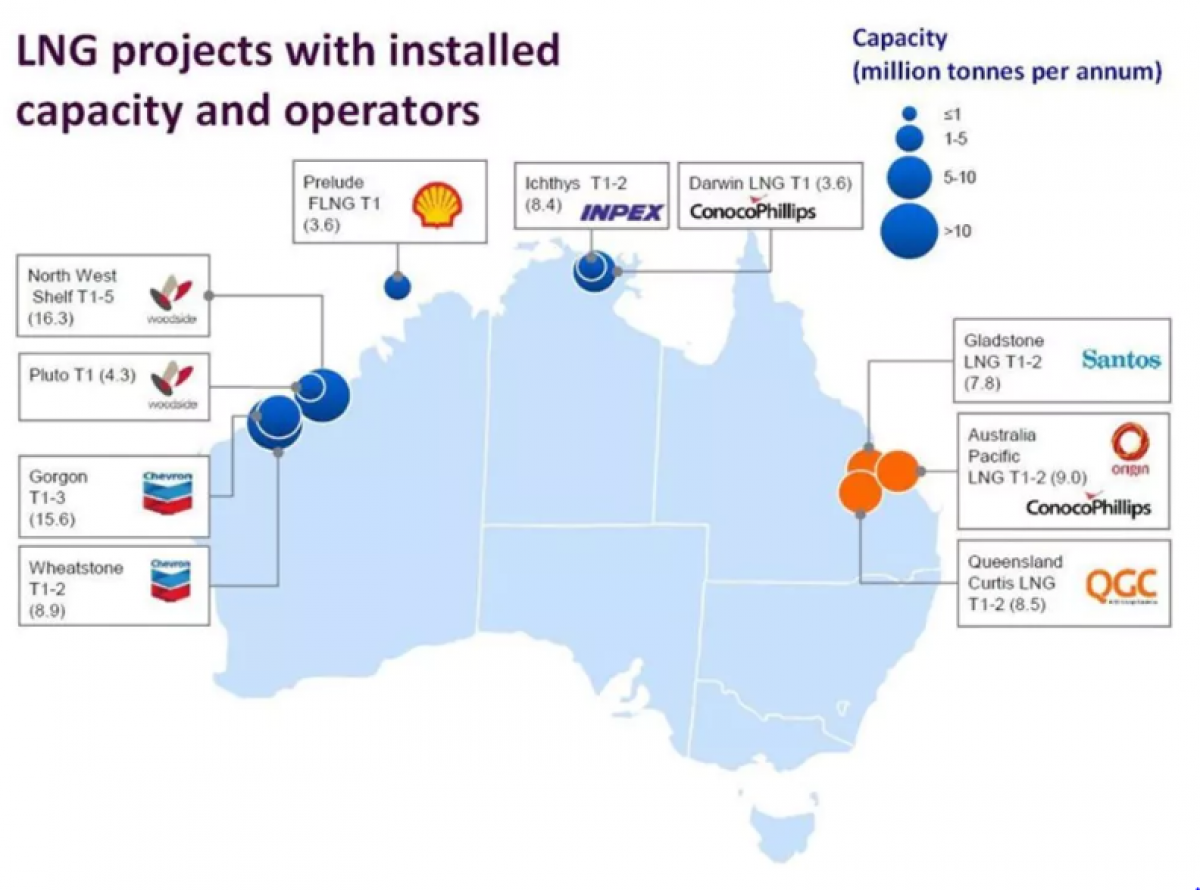The consumption of natural gas has grown considerably over the years. Especially LNG is in high demand as it adds a degree of flexibility to the market. Although Australia’s gas reserves are relatively modest, the country overtook Qatar and became the world’s largest LNG exporter in 2018. Several factors facilitated its rise: a favourable business climate, geographic proximity to essential buyers in Asia, and sufficient skilled workers.
However, Australia's LNG industry has been facing scrutiny from environmentalists, which has tainted the sector's image. The Australian Petroleum Production and Exploration Association (APPEA) recently decided to become more proactive in promoting the industry's interests and role in domestic and global energy markets.
A booming sector in a divided country
Australia’s LNG industry became the world’s largest after several major projects were completed during the last couple of years. The country exported approximately 80 million tonnes of super cooled natural gas last year while producers are gearing up for the next expansion phase due in 2020. The country’s proximity to Asian markets and the trade war between the U.S. and China have improved the odds of a successful ‘final investment decision’ next year.

(Click to enlarge)
Rising energy prices are partly to blame for the domestic image of the Australian LNG industry. This comes at a time when the country produces record amounts of natural gas which certain politicians have used as an opportunity to propose export quotas to secure natural gas for the domestic market. Although the surprise re-election of Australia’s centre-right government means producers face less pressure, the APPEA agrees a consistent, proactive message is still required to improve the industry’s standing in Australian society.
At the same time, environmentalists are maintaining pressure on the fossil fuel industry. According to Emma Herd, Chief Executive of the Investor Group on Climate Change: “investors continue to engage with the oil and gas industry to understand how they are positioning for a net zero emissions global economy”.
“It’s time to tell our story”
In the past, the APPEA focused on expansion activities such as supporting the construction of cost-effective LNG facilities by lobbying the government to introduce favourable policies. This year’s event, however, sharply changed the focus of attention towards improving relations with the general public which was summed up in the launch video proclaiming: “It’s time to tell our story. On our terms.” Related: Ethanol Industry Suffers Major Blow
The APPEA’s strategy to become more proactive in Australia’s public debate concerning the LNG sector is based on three pillars. First, a positive image on social media will be created to reach young people who are vocal and often oppose the fossil fuel industry. Second, industry representatives will also have to lobby the federal and state governments to be more supportive of exploration and increased production activities, which they see as the easiest way to lower costs for domestic consumers. Lastly, a positive narrative needs to be developed to oppose environmentalist’s arguments.
Countering these arguments should benefit the LNG industry, which is negatively affected by the image the green movement has created in which extraction and liquefication sharply increases Australia’s CO2 emissions. Woodside Energy CEO Peter Coleman acknowledges that the industry emits greenhouse gasses, but LNG's overall impact on global emissions is positive due to the replacement of coal elsewhere, such as China.
The final word
Despite a well-prepared strategy, the decisive factor could be what Prime Minister Scott Morrison calls the “quiet Australians.” According to some analysts, these are the voters who don’t speak up or express their voice in some way or another but want cheaper electricity and energy security. During the campaign, the opposition Labour and the Greens aimed for what they called the “the climate election” which largely failed to take off. The electoral victory of the ruling party shows that voters are more concerned with rising energy bills than increased CO2 emissions.
By Vanand Meliksetian for Oilprice.com
More Top Reads From Oilprice.com:
- Oilfield Services Feel The Pain As Crude Prices Drop
- OPEC+ Has Only One Choice As Oil Prices Slide
- China-Made Tesla Sells In 3-Minute Blitz


















